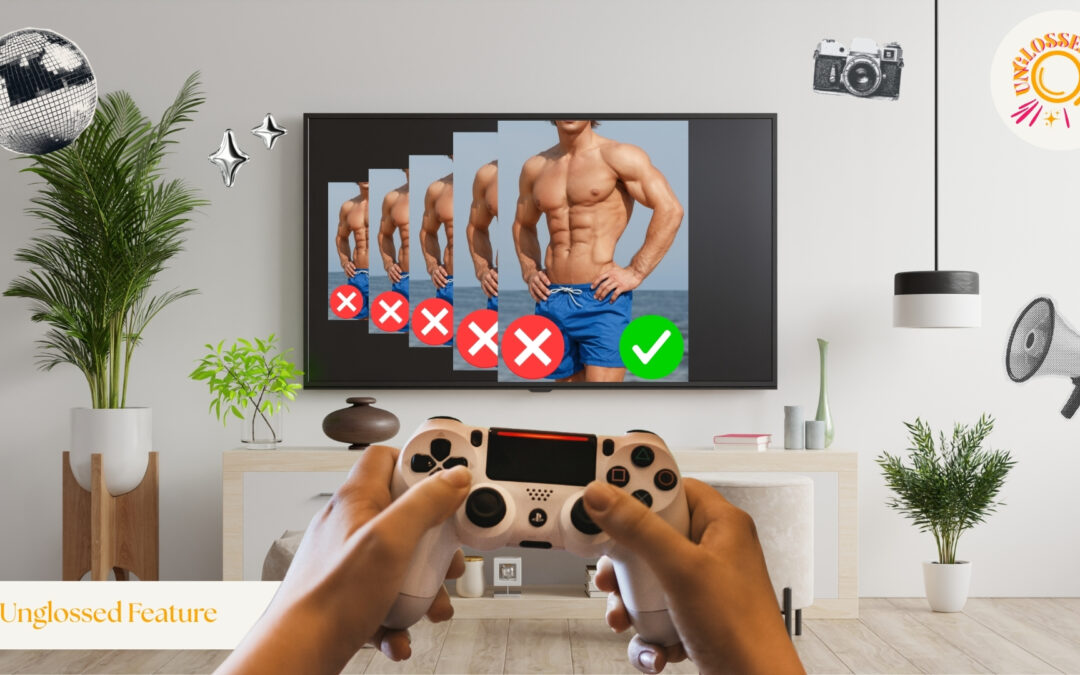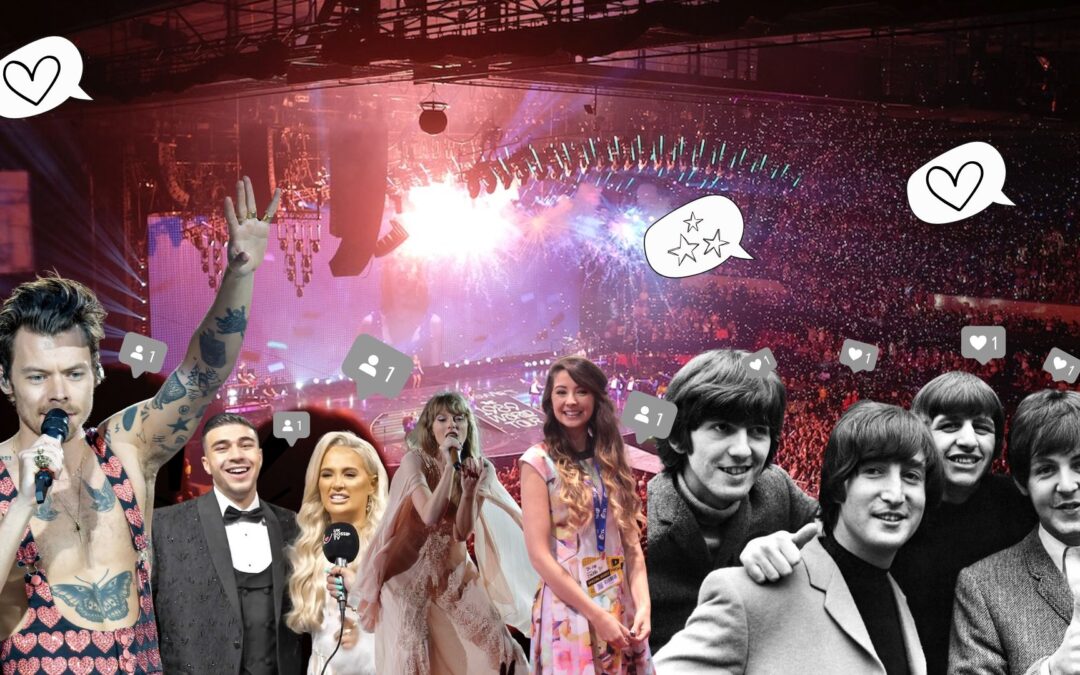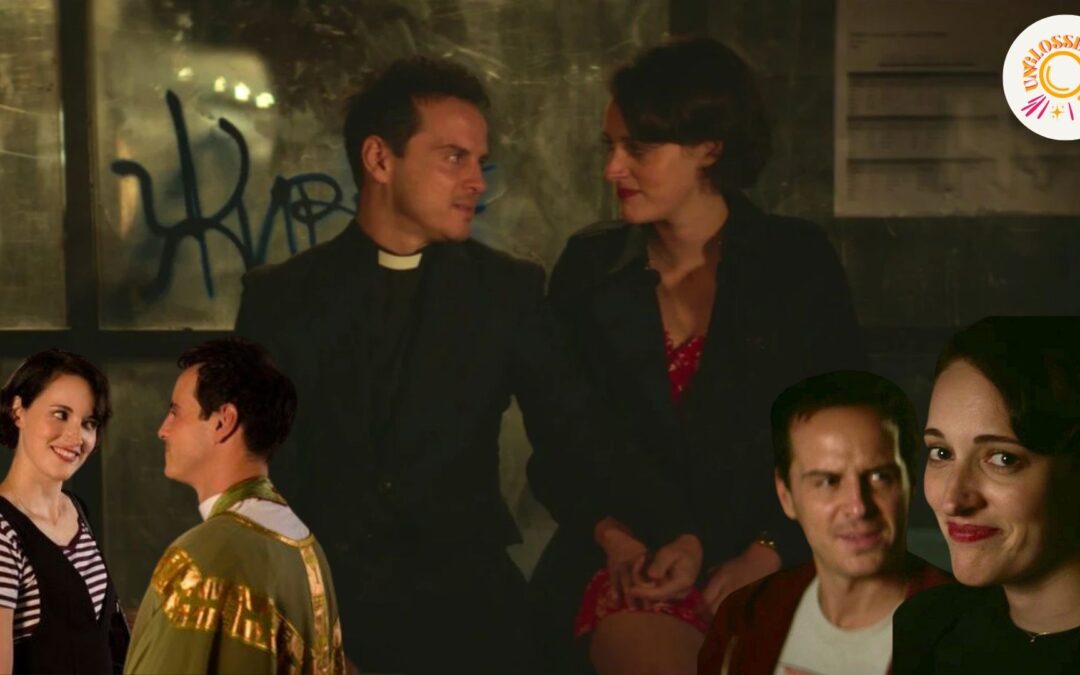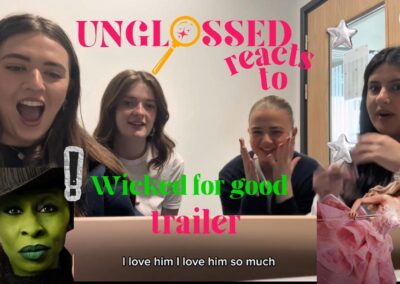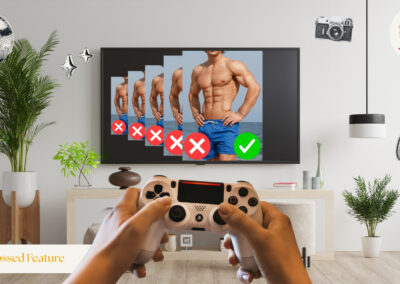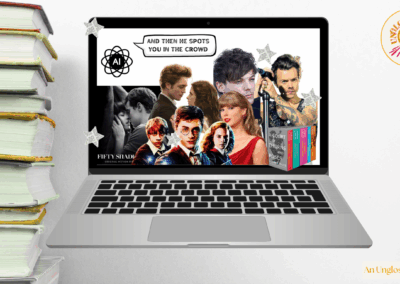With the viral clips from Love on The Spectrum continuing to soar, Unglossed chats to experts about what we can learn from watching autistic people date.
Love On The Spectrum (LOTS) Season 3 flew to number one on Netflix the week it was released, and even if you haven’t seen the show, the hilarious, relatable and adorable clips from it will have blessed your FYP. From “cop a feel I must” to “you’re the milk to my Chardonnay”, I’m finding the show’s innocent, candid moments becoming my everyday catch phrases.
Part of my adoration for the show comes from the fact that these people seem to say exactly what we are all thinking when dating, but never have the guts to say (unless incredibly intoxicated and then it’s usually followed by intense regret and prayers for amnesia). There is something so pure about the show, no chat about ‘types on paper’ or ‘getting mugged off’, just a series following individuals who are genuinely looking for a connection. It honestly is the ideal way to date.
Olivia Knight is a trustee at the Autism Practical Support Charity. Her role is helping people with autism navigate the relationships in their lives. “What I loved about the show is the different personalities we get to see, it really shows Autism doesn’t automatically make you one way.
“I must admit at first glance, I thought I might be sending a strongly worded email to Netflix, because I was so worried that it was taking advantage of vulnerable people, but actually it’s the opposite. It showcases that Autistic people want the same things we do, and they deserve support with not only jobs and school, but with love and relationships.”
One clip of Love On The Spectrum star Connor Tomlinson has gone especially viral on TikTok, where he is visibly horrified at his mum for setting him up on a date with a blonde girl, because he “has a soft spot for brunettes”.
Olivia says: “Not only was the clip hilarious, because of his reaction and relationship with his mum, but significantly it reflects that autistic people have preferences. They aren’t just attracted to anything or everything, like us they have physical attributes they prefer. It can be really frustrating for people when we presume otherwise.
“I think in terms of dating we could all do with a little more honesty, and that is the joy of a number of autistic people, they feel no shame being completely brutally honest.”
Hannah Blackburn, 21, was diagnosed with Autism when she was 15, and she’s incredibly passionate about campaigning to break the stigmas around autism. “Getting diagnosed was the best thing that could’ve happened for me personally, so much of my life now makes sense. Like why I found school so hard, and why I have always struggled in certain social situations.
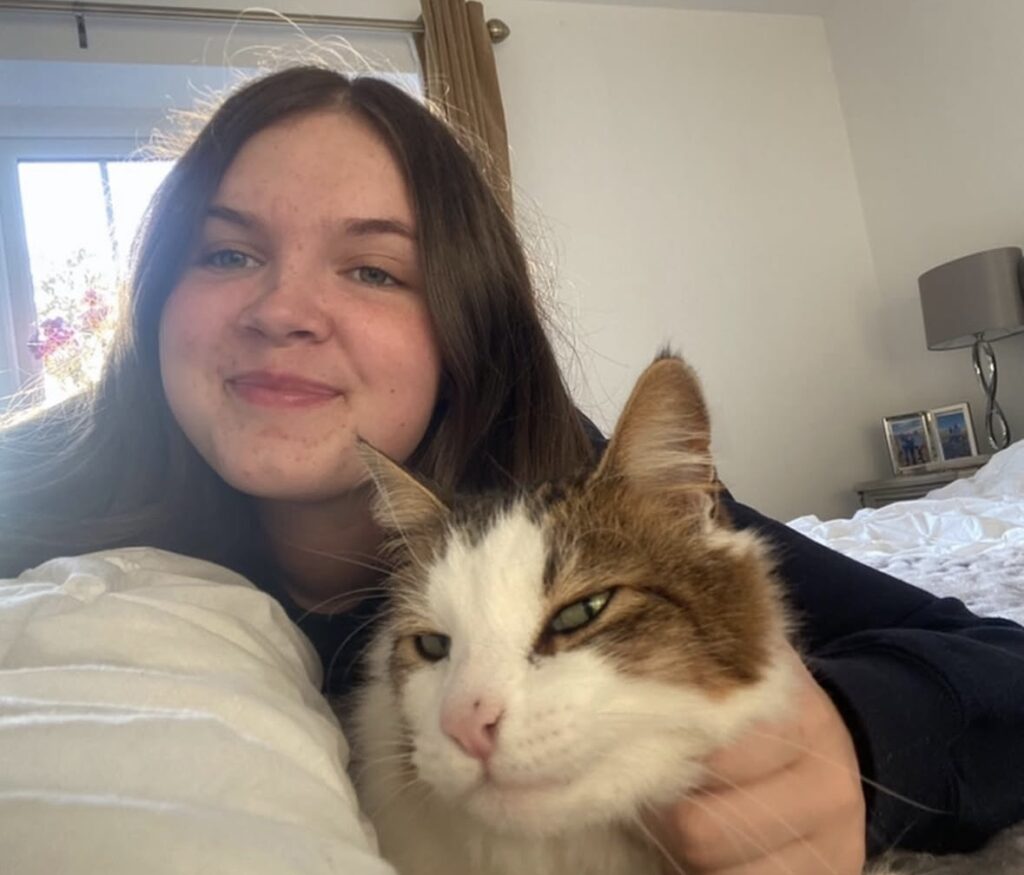
“My opinion overall about Love On The Spectrum is that it’s good and something I would recommend watching. I really like how it’s clear that they have used autistic people behind the scenes as well as on screen, as this makes the whole thing seem more accessible and nurturing. I think if you don’t do that you’re screwed from the start really.
“I also think it raised some really important points, like in the first episode of the second series one person gets asked how they have kids if they are autistic. Which just sums up the prejudice and ignorance some people have towards it.”
Hannah explains that half the battle of being autistic is trying to explain to everyone that autism looks different on everyone.
“I’m not even sure how I feel about the word spectrum, because it’s exhausting when you constantly hear that everyone is probably a little bit on the spectrum- because not everyone is autistic. But I do believe that if you are calling it Love On The Spectrum, you need to show the spectrum. I feel like the show mostly features people with higher support needs. I hate the term high functioning and low functioning autism. But it does feel like the people who don’t get asked to return for another season are because they aren’t ‘autistic enough’.
Something else that bothered Hannah was the show’s background music, something I’ll be honest and say as a neurotypical viewer, I hadn’t even noticed.
Hannah says “If you watch it back, you’ll notice that they have very upbeat, kiddy-like music. It’s almost music you could skip along too. If you watch other dating shows they don’t do this sort of crazy happy music, and I can’t help but feel that’s intentional on Love On The Spectrum. I feel like they know that a neurotypical person would watch this and then look down on the cast in a patronising way- like ‘oh they are so sweet, they’re like children’. Which is so harmful.
“Autistic people don’t need that, I know myself when I have dated in the past, and it’s not something that is any more heart warming or nice than watching any other dating show. My relationships have been very similar to my peers, and I’ve never felt on edge about dating until I saw the way it was portrayed in the show, because I don’t want to feel that my actions are being watched because people think they now know how autistic people date.”
The show, although on the whole tends to be overwhelmingly upbeat and positive, it does tackle some very real challenges that autistic people face. Specifically, it delves into loneliness and the struggles of trying to find someone when your neurodivergent brain has a very specific criteria.
Personally, I related SO much to the moment where James lists the extensive amount of things he doesn’t want in a partner. Including them having a pet, although he said a cat may be ‘acceptable.’ As a woman terrified of the silent assassin’s which most call a kitten, that’s a firm no from me thank you. Maybe we’re the problem- but I prefer to call it high standards.
Olivia explains “Compromise is always hard in relationships but it can be trickier for those with autism, but there is a lot we can learn from this. So often we find ourselves trying to fit in to be what our partner wants. It’s refreshing to see people not doing that I think.”
Olivia says “For families with autistic children, loneliness can be a real concern. Some autistic people are incredibly sociable, whereas others could happily live in their own world with no outside influence. Dating and friendships are hard enough, never mind when your brain works differently, it’s so lovely for people to watch how beneficial going out of your comfort zone can be.
“I think the show does an exceptional job at showing the power of trying something new and how it’s always best to be honest, but in a kind way, when you’re dating.”
Liam Hughes is a big fan of the show. His 14 year old brother Marc has autism and attends a specialist school for support. Liam says: “Overall what I think the show really excels at is showing the joy that is Autism. Part of me wishes they showed a little more bad, and how exhausting it can be living with someone who has higher needs. But actually sometimes I think it’s probably good to exaggerate the good when things have a negative stigma like Autism does.”
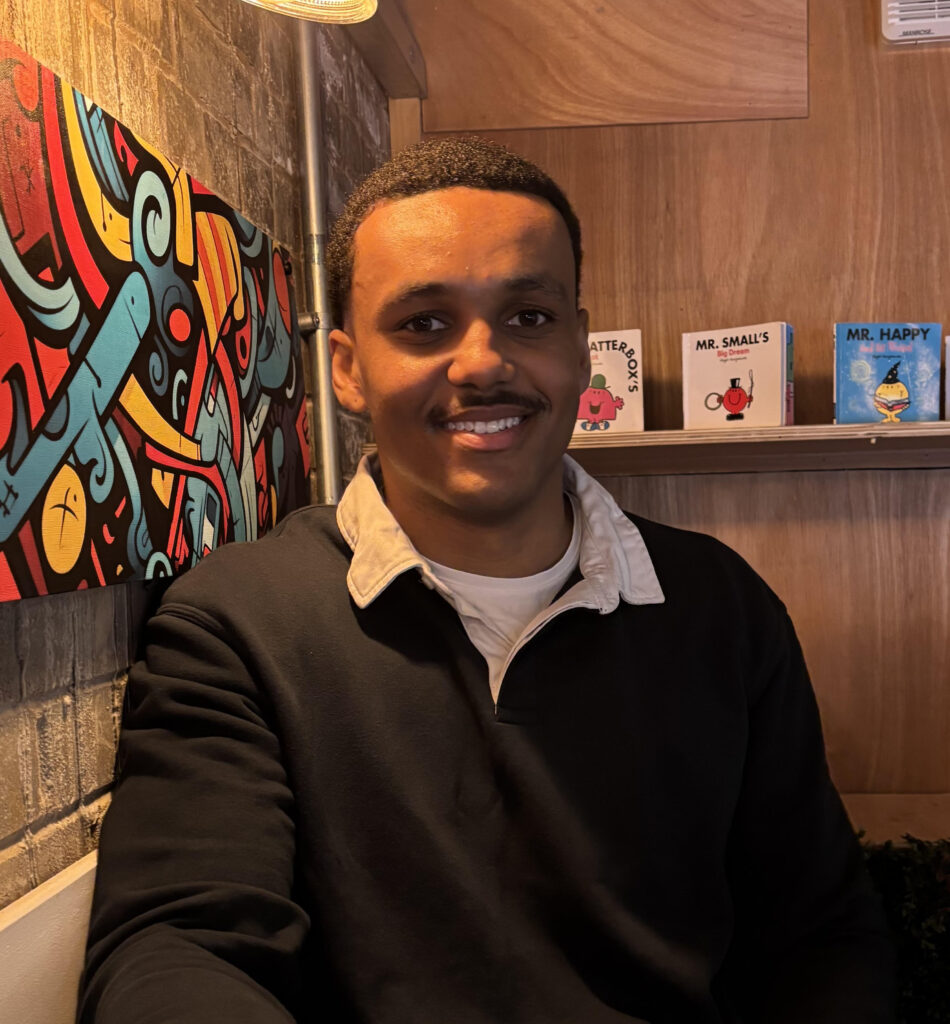
Something that Love On The Spectrum has consistently done in all three seasons is ensure that the dates they send the couples on are ones which would make the individuals comfortable. This means they don’t always meet at a restaurant or the cinema, they go to the farm, the zoo, for walks and even to conventions like Comic Con.
Liam says: “I really like the set up they have for the dates, it means that they really give people the best chance at enjoying themselves. If you look at other dating shows like First Dates, where everyone sits in a restaurant and talks, that is not always optimal for someone with Autism. So it’s great to see provisions in place to make sure that they actually enjoy the process.
“It’s lovely for me and my family to watch and think oh that’s how Marc would be, or even that’s sweet Marc wouldn’t do that. It’s nice to just recognize the person you care about in others who are similar.”
Whilst Liam says he hasn’t given Marc dating too much thought, since he is only 14, he feels the show has opened his eyes to the fact that one day Marc may want to.
Liam says “I think for Marc personally, he doesn’t always think about the process that goes into something, only the end result. And I’d imagine others are the same. So he just assumes he will either meet someone or he won’t. So watching LOTS is a great way to show what actually goes into finding someone you want to date.
“It’s also shown me that we should all be putting more emphasis on helping our autistic friends and family with relationships. I think most neurotypical people would say the things in life we are most proud of are usually our relationships, our family, followed by our job, education or our financial status. I think teaching autistic people to put too much emphasis on the latter does such a disservice. And the show has definitely opened my eyes to that.”
Olivia, Hannah and Liam all agreed that overall, they would recommend the show to both neurotypical and neurodiverse individuals.
Liam says: “I’m not sure Marc would cope going on the show, just because I think the cameras and lights would be too much, but I love the idea of him watching it. And it’s nice to think of him one day dating in that way. I think they do a great job of matching people up, and setting them up for success.
“And if nothing else, it’s really refreshing to see all the best parts of autism being shown, even if it’s glamorised slightly, I think that is actually helpful in this scenario. I hope people can learn from how smart, honest and actually quite good at dating autistic people can be.”
Olivia Knight is a trustee at the Autism Practical Support Charity. Her role within the organisation focuses on helping young autistic people navigate relationships and live happy, fulfilled lives.


